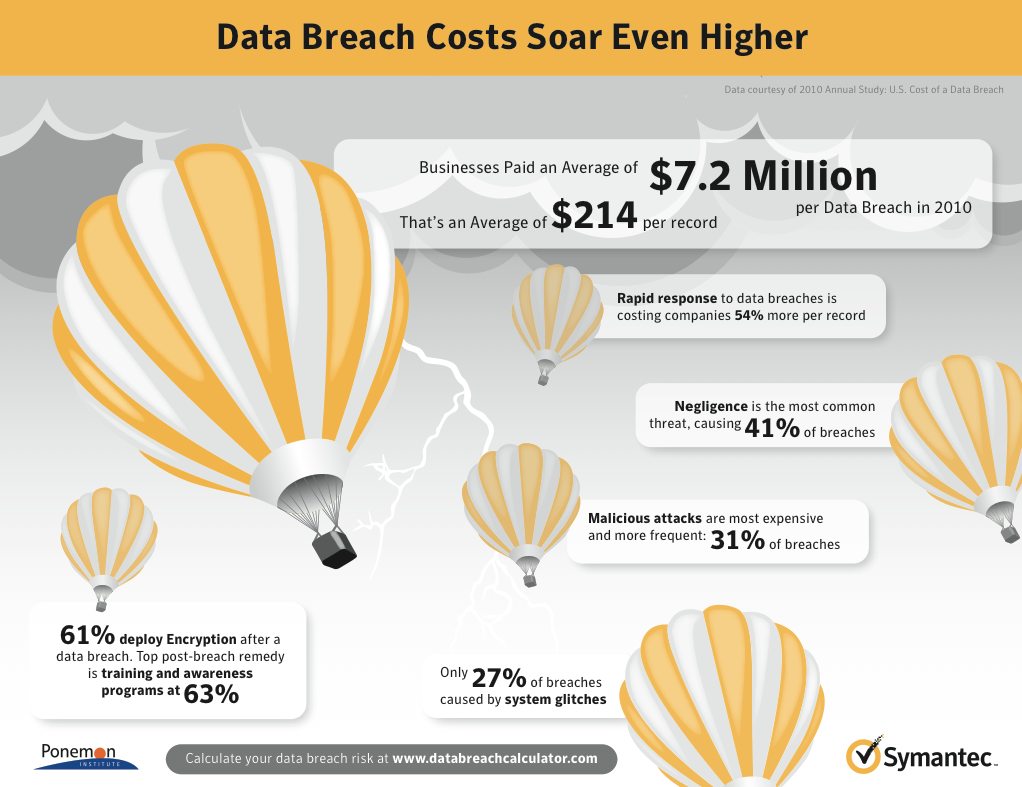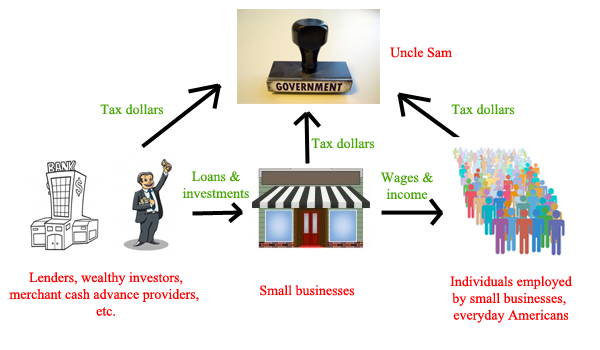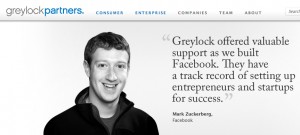business cash advance
Made for Each Other?
December 12, 2012You want fast cash loan? “We have Short term loans online from £1 – £1000 with no fax required. Instant approval, 24 hour self-service account access and 15 minute cash payout guaranteed.” Not exactly the kind of advertising you’d see in the Merchant Cash Advance Industry. It sounds like a payday lender headline, the kind of marketing that critics would jump on and rally regulators to put an end to. It’s the antithesis of what many alternative loan providers that operate in the MCA space have come to stand for. And it could be coming to a theatre near you.

 Meet Wonga, an online payday loan company in the U.K. with a representative APR of 4,214%. According to many news sources, they’re looking for an entry point into North America and they may have found one (Watch out Silicon Valley, the Redcoats are coming!). In a deal that would be valued at around $250 million, Wonga is getting cozy with On Deck Capital (ODC). It was only a few years ago that former ODC CEO Mitch Jacobs was warning the public about the high costs of Merchant Cash Advances. It appears their views may be evolving. Not that we have anything against either company, because we don’t. It’s just that when you think of how respected ODC is in the market today, it’s hard to picture them being gobbled up by a company that offers fast cash loans from 1£ and up for a four figure interest rate.
Meet Wonga, an online payday loan company in the U.K. with a representative APR of 4,214%. According to many news sources, they’re looking for an entry point into North America and they may have found one (Watch out Silicon Valley, the Redcoats are coming!). In a deal that would be valued at around $250 million, Wonga is getting cozy with On Deck Capital (ODC). It was only a few years ago that former ODC CEO Mitch Jacobs was warning the public about the high costs of Merchant Cash Advances. It appears their views may be evolving. Not that we have anything against either company, because we don’t. It’s just that when you think of how respected ODC is in the market today, it’s hard to picture them being gobbled up by a company that offers fast cash loans from 1£ and up for a four figure interest rate.
Or maybe this is exactly what we’ve been predicting all along. One of Wonga’s primary investors is Accel Partners, the guys that got in early on Facebook and did a nice deal with Capital Access Network. They are joined by Greylock Partners, a self-described “Leading Silicon Valley Venture Capital Firm,” that coincidentally also invested in Facebook. So what the heck are these two companies doing in the U.K.? It sure looks like they are fulfilling our Silicon Valley Invasion prophesy:
How the Facebook IPO Affects the Merchant Cash Advance Industry 5/18/2012
The Bubble That Wasn’t 8/17/2012
The End of an Era 9/19/2012
Ten Days 9/28/2012
Bloomberg.com’s article about the advanced stage talks between ODC and Wonga came just TWO DAYS after Steven Mandis walked into the room and bought a material stake of the 2nd largest company in the industry, RapidAdvance.
It seems like just yesterday we were all saying something about financing based off of credit card sales, but now? Now… it’s starting to look like you can get fast cash loan 15 minutes, no fax!
This business gets more interesting every day.
—–
Update: 12/13/12
Wonga does make loans to businesses already in the U.K. The application process takes about 12 minutes and funding happens in 30 minutes. This would be a game changer in the U.S. Refer to this article: http://techcrunch.com/2012/05/07/wonga-extends-its-payday-loans-to-small-businesses-in-uk/
– Merchant Processing Resource
https://debanked.com
MCA Playoffs Begin
December 11, 2012 Congratulations to Merchant Cash and Capital, RapidAdvance, Sure Payment Solutions, and TakeCharge Capital for being the 4 teams to make the MCA Industry Fantasy Football League Playoffs.
Congratulations to Merchant Cash and Capital, RapidAdvance, Sure Payment Solutions, and TakeCharge Capital for being the 4 teams to make the MCA Industry Fantasy Football League Playoffs.
The playoffs are 2 weeks long.
Round 1:
RapidAdvance vs. TakeCharge Capital
Merchant Cash and Capital vs. Sure Payment Solutions
Round 2:
Winners of Round 1
Current prize amount to be donated to charity:
Pledged: $7,100
Collected: $6,025
100% of the amount collected will be donated to the winning team’s charity.
Charity candidates remaining:
- Gift of Life Bone Marrow Foundation – Via the Silver Project
- Cystic Fibrosis Foundation
- ALS Association
- Distressed Children & Infants International
A press release announcing the winner and donation is scheduled to go out at the end of this month or early January. If you would like to contribute to the total charity prize and get recognition for it, e-mail sean[at]merchantprocessingresource[dot]com.
Adwords Trouble Ahead for MCA Industry?
December 6, 2012The MCA industry is complicated. Tons of funders purchase future receivables, some do traditional loans, and others operate in a gray area in between. But what will Google make of it? The rules are changing and we predict a lot of funders are going to face a massive challenge in advertising with Google Adwords. See the e-mail that went out:
Dear AdWords Advertiser,
We’re writing to let you know about a change to Google’s advertising policies that might affect your AdWords account.
Beginning in the coming weeks, we will require all short-term loans advertisers to display the following prominently on the landing page:
1. Display the APR. Aggregators/lead generators may provide a representative APR range for their network.
2. Display the implications of non-payment, including the following:
– Financial implications (fees and interest)
– Collection practices
– Potential impact to users’ credit score
– Renewal policy information, including if the renewal is automatic and if there are fees associated with the renewal
– Aggregators/lead generators may provide sample implications from their network to satisfy the above requirements. Implications of non-payment should be grouped together in one location on the landing page.The above must be displayed prominently, meaning the same font type, size, and color as the base text on the landing page. These guidelines apply to lenders, aggregators, and lead generators alike.
In addition, we are updating our policy on consumer advisories. Going forward, payday loan ads (a subset of short-term loans) will only be shown on Display Network sites that are related to payday loans. Ad serving in the Search Network will not change.
When we make this change, Google will suspend all campaigns identified as being in violation of our revised policy. Our system identified your account as potentially affected by this policy change. We ask that you make any necessary changes to your ads and sites to comply, so that your campaigns can continue to run.
We’ve given much consideration to our stance on the advertising of this content and the potential effect our policy decision could have on AdWords advertisers. However, as a business, Google must make decisions regarding the advertising that we accept. As noted in our advertising Terms and Conditions, Google may refuse any ads or terminate ad campaigns at any time, for any reason. You can view our Terms and Conditions at https://adwords.google.com/select/tsandcsfinder.
Sincerely,
The Google AdWords Team
Good luck!
Movember Rocked!
December 1, 2012 Movember: Mo’ Merchants, Mo’ Deals
Movember: Mo’ Merchants, Mo’ Deals
The pre-holiday season is usually big in the Merchant Cash Advance (MCA) industry but this year seemed different. We’ve been saying that we’ve entered a new era for a long time, but it’s finally starting to seem real. It feels like 2007 again in a way, when everybody was getting rich and nobody even knew what the heck they were selling. It took years for account reps to finally stop referring to advances as loans and by then it was too late because the ACH loan industry was born.
E-mails like this don’t happen very much anymore:

You know… the ones where the deal would be blatantly shotgunned to multiple companies at once. The major broker shops would “accidentally” CC everyone instead of BCC to let the funders know who was in charge.
That’s not to say that deals don’t get shopped, Some do, but the circumstances have changed. To minimize the risk of being flooded with bad paper, funders ask resellers to put their money where their mouth is. The syndication game has become THE game in town and it’s led to Super ISO networks like the Factor Exchange. A user on the DailyFunder that seems to be intimately familiar with Factor Exchange is quoted as explaining the model like this:
The “mom and pop” ISOs and “Onesy-Twosey” brokers are backed by one giant ISO network and The Factor Exchange assumes half of the risk by syndicating 50% on nearly ever deal…
The massive volume of FEX submissions to lenders gives the ISOs power to negotiate for better rates and terms, One point of submission reaches 15+ lenders, the merchants credit is only pulled once, and the commission is passed straight through to the ISOs because FEX makes their money from participation.
Companies like this empower the smaller brokerages…

Who Did Mo’ Deals in Movember?
Yellowstone Capital broke their single day funding record… TWICE. This actually happened on back to back days. Executive management reported that they funded approximately $3 million in 48 hours.
Who Got Mo’ Money?
Wall Street wizard and business professor, Steven Mandis acquired a stake in Bethesda-based RapidAdvance. The news is all the more interesting with the fact that RapidAdvance is easily one of the top 5 largest players in MCA. Single individuals don’t exactly just walk through door and buy a stake in companies like this. Mandis is taking on a Strategic Advisor position and it’s our guess Rapid is about to enter another major phase of growth.
Who Got Mo’ Likes?
Merchant Cash and Capital’s (MCC) facebook fan page has gotten thousands of Likes since the third week of Movember when they announced their charity campaign. For every new Like until December 7th, MCC is donating $1 to the American Red Cross to help people that were affected by Hurricane Sandy.
Who Got Mo’ Wins?
RapidAdvance was the first team to clinch the playoffs in the MCA industry fantasy football league for charity. Something tells us that Mandis is behind their incredible winning streak.

Who got Mo’ Leads?
You did if you bought leads from either one of our lead advertising partners, Meridian Leads or SmallBusinessLoanRates.com.
Lendio has also been making a splash on the MCA lead scene with Dave Young being a big contributor on DailyFunder. To discuss pricing, he can be reached at dave.young[at]lendio.com
Who lied Mo’?
According to CNN’s statistics, 247 million people in the U.S. went shopping on Black Friday. That’s equal to the entire American population over the age of 14. Something doesn’t smell right with these numbers. It’s our guess that CNN is using Mitt Romney’s polling experts. 😉
But someone else lied just a little bit Mo’. On Movember 26, 2012, PRWeb published a release that claimed ICOA Inc., a small tech company in Rhode Island was acquired by Google for $400 Million. The release turned out to be a hoax as part of a stock pump and dump scheme. Many critics have been left wondering why PRWeb didn’t do anything to verify its authenticity. Considering PRWeb is such a widely used PR service in the MCA space, we can testify that they’ll pretty much publish anything so long as you pay the fee. Some smaller companies use it as part of their SEO campaigns, which explains why there are so many strange looking releases out there that seem to repeat the same keyword in every sentence.
ABC Funding Co Just announced a program that will help small businesses in need of cash by providing these small businesses in need of cash with a special type of financing that will hep them if they are a small business in need of cash. Not exactly New York Times material…
Will Movember be followed by Make-a-lot-of-Doughcember? We’ll find out!
– Mo’chant Processing Resource
https://debanked.com
MCA History in Honor of Thanksgiving
November 21, 2012
Before fax, e-mail, and e-signatures, merchants used to travel up to 400 miles to fill out a funding application.

The famous response to a British sea captain by John Paul Jones is actually believed to be a misquote. 'Fund' was changed to 'fight' to better preserve his memory but it is theorized that he predicted the birth of Merchant Cash Advance. He died in 1792, two hundred years before the first small business got funded based on their credit card sales

In 1621, the local merchants were funded on the third Thursday of November, just narrowly beating the wire deadline. This feast was almost not possible.

The first underwriters. Yeah... they were British.

The first collections department.

Back then you needed a lot more than just a payoff letter to change companies...

This merchant successfully opened his 2nd location.

This winery just refi'd again last week. $132,292,222,144,923,383,293,819,183,189,380,678 was withheld and credited to the outstanding balance.

Reason for Advance: Need to stock up on more tea inventory.

We apologize if our history is a little off 😉
– Merchant Processing Resource
https://debanked.com
MPR Advises MCA Companies to Perform Penetration Tests
November 20, 2012The Merchant Cash Advance (MCA) industry is riding high from a stream of recent publicity and investor interest. Billions of dollars are pouring into the market and some companies are desperately trying to upgrade their software platforms to keep up with the growth. With more exposure comes new curiosity, and not all of it is positive.
There is no widely used software platform in the MCA industry, which is a good thing and a bad thing. It’s bad in the sense that each company has more or less created their own database system, increasing the odds that some companies will have security flaws. It’s good in the sense that if one company suffers some kind of breach, the method used should not be applicable across the entire industry.
Don’t worry, we’re not posting this to scare merchants. In fact, we don’t recall a single MCA firm ever having suffered a public data breach, a statistic unheard of in other industries. So why bring it up? As MCA firms collect more data and handle more money, the more likely they will become attack targets by hackers. The more valuable the stash, the more sophisticated the attacks. Major players like Heartland, TJX, and Global Payments have had sensitive information compromised on hundreds of millions of customers. The moral of the story? Prepare yourself as much as you can.
 If you think it can’t happen to you because your system was developed by a third party, you’re wrong. It’s time to get tested. A Penetration Test, as defined by wikipedia is:
If you think it can’t happen to you because your system was developed by a third party, you’re wrong. It’s time to get tested. A Penetration Test, as defined by wikipedia is:
a method of evaluating the security of a computer system or network by simulating an attack from malicious outsiders (who do not have an authorized means of accessing the organization’s systems) and malicious insiders (who have some level of authorized access).
Some may be inclined to compare a Pen Test to sitting in the waiting room of Student Health Services. You’re scared of what they might find and maybe you’d rather not know, but not getting tested at all is the worst thing you can do.
One such Pen Test was performed by an MCA firm months ago that had just purchased a customized software system from a third party. We will not name the firm or the software provider.
After a year of designing, testing, and writing fat checks to a prestigious group of software developers, the MCA firm had finally implemented a state of the art system that would propel them to the next level. After a month of using it, they asked a new hire to do some tests to make sure all of the basic features were working. The bells and whistles were decked out to the nines but no one had tested the easy things like going through the motions of resetting their password if they forgot it.
The new hire noticed something slightly off with the basics and reported his findings to the executives. Interested, but not really worried, they gave him permission to act as if he were a disgruntled employee. Turnover was high in the telemarketing department and there was occasionally a person that would shoot off a couple of dumb e-mails on their way out. But now with a system in place, could they do real damage?
The disgruntled employee test was really a simple Pen Test and this firm is eternally thankful that it performed one. Within 7 minutes, the new hire was able to access and modify every piece of data in the system. He was able to exert administrative power without having administrative level access. The worst part of what he did? There was no way to prevent against this mess because of how the software was coded. The best part of what he did? It was only a test and all modifications were immediately reversed.
It took a long time for the MCA firm to take a corrective course of action. Whether they ended up patching the software or tossing it altogether, we won’t say. What’s important is that they were able to identify these flaws on their own and early on. Many companies in this industry have long-term funding projections that exceed $1 billion. At that size, there will be much more to worry about than disgruntled employees. The bad guys will be lined up around the block in cyberspace trying to get in. SQL injections, buffer overflow attacks, DDoS Attacks, and much more will be lighting up those systems on a daily basis. Most MCA account reps advise their merchants about PCI compliance, but today we’re reminding you to take your own advice.
Resources:
In-house Penetration Testing for PCI DSS
Penetration Testing Guide and Samples
Security Assessment-Penetration Testing and Vulnerability Analysis
Cost of a Data Breach
Estimate Your Risk Exposure
Global Payments Breached

Pass it on.
– Merchant Processing Resource
https://debanked.com
Forward?
November 8, 2012The election is over and now it seems we will be “Moving forward, not back.” The republicans that have already come to accept Romney’s defeat are sounding a lot like Sookie Stackhouse:

Onwards we go to help the little guy, a process many feel can’t happen until we end trickle-down economics. It’s the trickle part that doesn’t sound good. Money should flow freely gosh darn it, not trickle! We couldn’t agree more. Here’s a broad diagram of the economy at work:

It’s popular to hate Wall Street, but Wall Street provides small businesses with financing to expand, who in turn employ more people in the process. Wall Street is not just banks and Merchant Cash Advance companies. It is any party that has enough money to invest in others while being able to absorb potential losses. A private investor is Wall Street. Wealthy friends or family members are Wall Street.
Tax these parties more and there is less money to invest in small businesses which means fewer businesses will receive capital to expand and hire. Wall Street will make less money as a result of less money being invested and therefore tax revenue will decrease. With fewer businesses hiring, less people will be employed and therefore less people will be paying taxes. Taxing Wall Street more does not necessarily mean more net tax dollars.
This Darn Trickle
One can dislike the economic chain since the flow of money between parties may not happen perfectly or because it allows Wall Street to get richer. There is nothing wrong with the rich getting richer, so long as the middle class and poor get richer too. If small businesses use the money invested by Wall Street wisely, they too will eventually become Wall Street. The amount of new jobs created as a result of a small business’s success means more wage earners will have a shot at becoming small businesses. In economics, a wide divide between rich and poor can be positive, for it creates a ladder that anyone can climb with no cap.
Empower the Little Guy
There is a competing theory and that is to believe that the economic chain starts with middle class wage earners. One could argue to significantly lower taxes on the middle class and the poor and impose much higher taxes on the rich. By doing so, consumers would have more money to spend at small businesses, prompting those small businesses to draw up plans to expand. That expansion capital still needs to come from somewhere and less of it will be there if Wall Street has been further taxed. Perhaps a small business could save money for a few years and use their savings to self-finance their own expansion. Under this theory, everyone becomes part of a very broad middle class. The extremes disappear.
Whoops
When the extremes disappear, there will be few investors with the capability to make large investments or investments that are particularly risky. A small business owner could save up for several years and open a 2nd location without an investment, but could he open 200 nationwide? Not without Wall Street. How many jobs will be created by the opening of 1 store? How many would be created by the opening of 200?
Now calculate how much new tax revenue is generated in each scenario, as well as the number of people that move up from being poor and unemployed to middle class and employed.
When the rich aren’t getting richer, the other classes can’t really move up either. Everyone stays in a broad middle class and innovation and advancements decline. The consumer or small business owner with a potential $100 million innovative idea won’t be able to raise the capital to see it through. How can they when the rich have been prevented from becoming really rich? What if they had a $10 billion idea?
One could argue as a single class society, that a $100 million idea or $10 billion idea could be financed by the government. This is true. It is also textbook state socialism. A one class society is also the premise of Marxism, where everyone is getting their needs met through cooperative work.
Marxism ignores the realities of a global economy. Ultimately, Americans need to obtain resources from other nations, and stay ahead technologically so as not to be conquered by outside forces. A classless society is a stale society, with no economic movement, social movement, or technological advancements.
How will the Merchant Cash Advance Market be Affected?
Merchant Cash Advance companies typically invest in businesses with less than 50 employees. Under Obamacare, any business with less than 50 employees does NOT HAVE to provide health insurance. This program may not affect the business as a whole, but the law mandates that all individuals purchase health insurance for themselves if they don’t have coverage already. Small business owners in the MCA market may be incrementally stressed by having to purchase health insurance. Their employees will be further stressed by having to buy it as well. As a result, wages may need to go up to help workers pay for their own insurance and less money will be available to grow and hire.
The total public debt outstanding has exceeded $16 trillion. That debt has to be paid for somehow and it is more likely than ever that Wall Street is going to have to pay up. This will not stimulate growth and as such, the economy is not likely to pick up any time soon.
Traditional lenders are going to remain quiet while the alternative lenders are going to power through it. A business could save up for three years and open a 2nd location or it could open it today with a Merchant Cash Advance. In three years, the location they want may no longer be available and that individual looking for a job will have run out of unemployment benefits long ago.
A Merchant Cash Advance helps small businesses expand today, hire today, generate more tax revenue for the government today, and helps everyone move up the economic ladder. Baby steps are better than none at all. What starts with a 2nd location may lead to a dream of owning 200 locations nationwide. They’ll need a bigger fish than MCA to get there. Let’s make sure we don’t tax those fish to death.

What do you think Michael?

Forward!
– Merchant Processing Resource
https://debanked.com
Sandy
October 30, 2012deBanked’s office was empty on Monday and early Tuesday morning due to Hurricane Sandy. Instead, we were out dealing with the reality of having no power or water for at least a week. We did survey some damage in east midtown Manhattan, an area where floods exceeded over 5 feet last night on 36th street, completely submerging cars. Floods subsided by morning.
One quote that got us through the night’s harrowing ordeal was a facebook update from Seth Broman, Merchant Cash and Capital’s VP of Business Development:
Dear friends and family, if this is the last communication I have for days with battery % approaching single digits, please make sure that all my rosters are properly updated for the bye weeks, proper waiver moves are processed, I vote against every trade except my own and I’d rather play without a kicker than drop Chicago’s D. Thanks, Seth
We hope everyone is safe. Did the storm affect you?



































